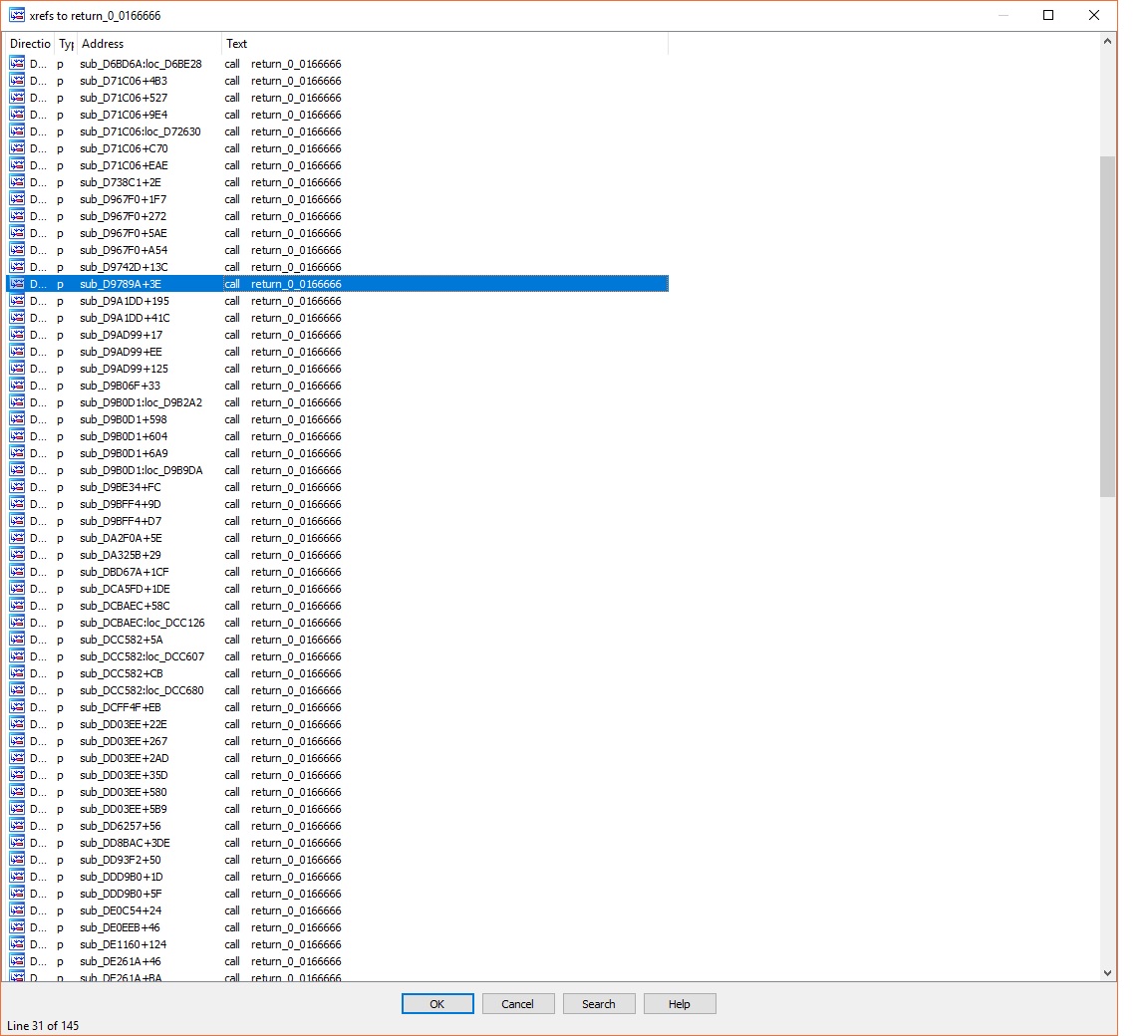Here is a brief list of all the places where this particular function gets called in IDA Pro. What this function does is return 1/60=0.01666 (the game tick's timestep) from a pointer, which value is used in the physics calculations of the game.
I want to find where is this function constantly getting called in order to determine where I should look to analyse just the relevant code, instead of going through the entire list 1 by 1. I know I have to do this while debugging and I need the fastest way to narrow down the list.
Edit after ~4 years lol:
You can hook the function and call _ReturnAddress, at least for MSVC.
